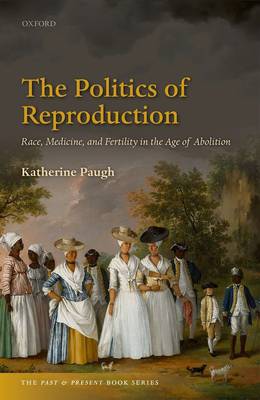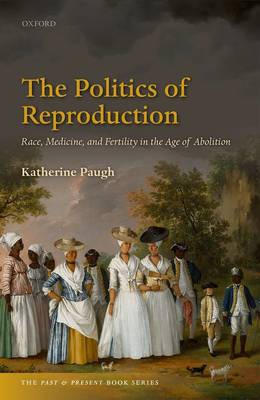
- Retrait gratuit dans votre magasin Club
- 7.000.000 titres dans notre catalogue
- Payer en toute sécurité
- Toujours un magasin près de chez vous
- Retrait gratuit dans votre magasin Club
- 7.000.0000 titres dans notre catalogue
- Payer en toute sécurité
- Toujours un magasin près de chez vous
164,45 €
+ 328 points
Format
Description
Many British politicians, planters, and doctors attempted to exploit the fertility of Afro-Caribbean women's bodies in order to ensure the economic success of the British Empire during the age of abolition. Abolitionist reformers hoped that a homegrown labor force would end the need for the Atlantic slave trade. By establishing the ubiquity of visions of fertility and subsequent economic growth during this time, The Politics of Reproduction sheds fresh light on the oft-debated question of whether abolitionism was understood by contemporaries as economically beneficial to the plantation colonies. At the same time, Katherine Paugh makes novel assertions about the importance of Britain's Caribbean colonies in the emergence of population as a political problem. The need to manipulate the labor market on Caribbean plantations led to the creation of new governmental strategies for managing sex and childbearing, such as centralized nurseries, discouragement of extended breastfeeding,
and financial incentives for childbearing, that have become commonplace in our modern world. While assessing the politics of reproduction in the British Empire and its Caribbean colonies in relationship to major political events such as the Haitian Revolution, the study also focuses in on the island of Barbados. The remarkable story of an enslaved midwife and her family illustrates how plantation management policies designed to promote fertility affected Afro-Caribbean women during the late eighteenth and early nineteenth centuries. The Politics of Reproduction draws on a wide variety of sources, including debates in the British Parliament and the Barbados House of Assembly, the records of Barbadian plantations, tracts about plantation management published by doctors and plantation owners, and missionary records related to the island of Barbados.
and financial incentives for childbearing, that have become commonplace in our modern world. While assessing the politics of reproduction in the British Empire and its Caribbean colonies in relationship to major political events such as the Haitian Revolution, the study also focuses in on the island of Barbados. The remarkable story of an enslaved midwife and her family illustrates how plantation management policies designed to promote fertility affected Afro-Caribbean women during the late eighteenth and early nineteenth centuries. The Politics of Reproduction draws on a wide variety of sources, including debates in the British Parliament and the Barbados House of Assembly, the records of Barbadian plantations, tracts about plantation management published by doctors and plantation owners, and missionary records related to the island of Barbados.
Spécifications
Parties prenantes
- Auteur(s) :
- Editeur:
Contenu
- Nombre de pages :
- 304
- Langue:
- Anglais
- Collection :
Caractéristiques
- EAN:
- 9780198789789
- Date de parution :
- 27-06-17
- Format:
- Livre relié
- Format numérique:
- Genaaid
- Dimensions :
- 236 mm x 157 mm
- Poids :
- 580 g

Les avis
Nous publions uniquement les avis qui respectent les conditions requises. Consultez nos conditions pour les avis.






